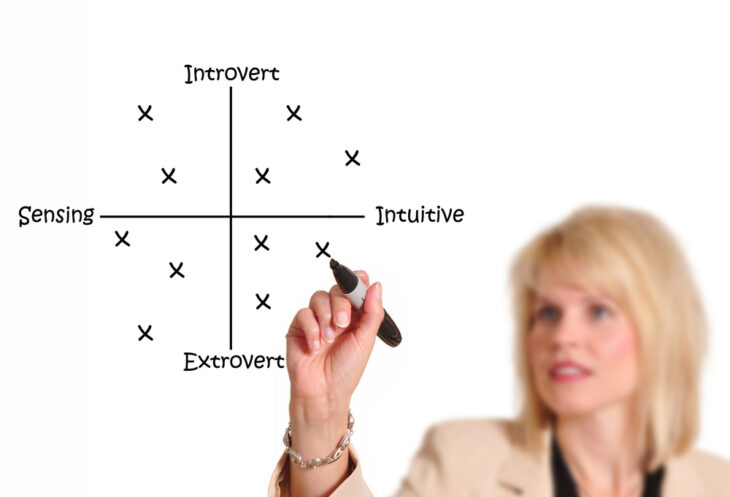Identifying the most compatible candidate for a given role requires firms to be innovative as to how they assess, review, and choose candidates in order to employ the most appropriate candidate for the position.
It is a research-proven fact that one’s personal traits serve as a great indicator of their work performance, plus evaluating candidates’ attitude traits within a workplace environment enables recruiters to comprehend if they are truly capable of delivering excellent work performance as well as if they fit in with the company’s culture.
These personality assessments are questionnaires created to uncover aspects of a person’s character. The practice of including personality tests during the recruitment process today continues to increase. On average, up to 60 percent of applicants are being requested to fill out personality tests as part of the recruitment process.
A know yourself test is a type of personality test that is designed to help people understand their own strengths and weaknesses. These tests can be used for a variety of purposes, including career development, personal growth, and team building. These tests can be a valuable tool for self-discovery and personal growth. By taking a test and understanding your results, you can gain insights into your strengths and weaknesses, and you can use this information to make decisions about your career, your relationships, and your life.
Moreover, while there are many organizations that implement personality tests as a career development tool, another 22 percent of employers use them to evaluate candidates’ character traits (for example, ability to convince, attention to detail, as well as conscientiousness) as part of the recruitment process.
Contents
- 1. What does a pre-employment personality test mean?
- 2. The use of personality evaluation improves candidate selection
- 3. Personality tests provide a dose of objectivity to the employment process
- 4. Identifying the best-suited candidates increases the quality and loyalty of employees
- 5. Personality tests will turn you into a better interviewer
1. What does a pre-employment personality test mean?

Source: searchlight.ai
Pre-hiring personality tests involve conducting a series of empirical evaluations that assess a candidate’s non-behavioral traits. Often, such tests are provided to candidates before an interview for the purpose of getting informed in the interview process. They take the form of several choice self-assessments in which the candidate selects which characteristics or statements most closely match his or her personality. The results allow you to gain a better sense of a candidate’s overall underlying traits including their motivations, style of communication, personality temperament, individual identity, and more. An assessment of personality can tell you, for example, how someone is likely to interact best with others, the way they deal most effectively under a situation under pressure, or their level of flexibility.
2. The use of personality evaluation improves candidate selection

Source: chiangraitimes.com
Taking a personality assessment to identify candidates at an early stage will greatly enhance your recruitment process. When used together with other kinds of assessments including levels of motivation and the cognitive skills, as well as interviews that are highly focused and have a structured approach, the personality scan helps to identify candidates who are a good fit for your company and helps to make recruiters’ choices more appropriate.
Being used at the start of the process, rather than at the end, will help eliminate candidates who are not the ideal candidate for the job in the first place. As a result, it simplifies recruiters’ ability to concentrate solely on the top profiles that show the best potential throughout the selection process, allowing them to ultimately select and employ the most suitable talents. Check out testgroup.nl to find out how to make your interview easier.
3. Personality tests provide a dose of objectivity to the employment process

Source: searchlight.ai
In addition to being difficult to evaluate a person’s personality in a brief one-on-one interview, an interviewer may read a person’s personality very differently compared to another interviewer within the same room. Personality tests from PersonalityData.org will add an additional level of objectivity as well as consistency to the evaluation of the personality of each candidate, while also providing you with a simple way to get a complete picture of each individual candidate.
4. Identifying the best-suited candidates increases the quality and loyalty of employees
Hiring the best candidate is equally as essential as keeping employees in the company and decreasing employee turnover. By using personality evaluation, you will be able to assess candidates more accurately to determine their eligibility and character, as well as to determine their likelihood of remaining in the position and if they would be a good candidate for the company’s culture. In order to evaluate the suitability of candidates for a role, you can take into account many aspects, such as an individual’s enthusiasm for learning; general ambition; personal responsibility and initiative; empathy; ability to communicate; ability to think critically; teamwork skills; sincerity; dedication; curiosity; etc.
The process of screening a candidate on these skills at a normal one-on-one interview might be highly challenging. After all, people not suited for a particular position will do worse when it comes to commitment and efficiency, and therefore they will resign more easily. Moreover, one thing you already know is that replacement of a bad employee can be very costly and can take a lot of time. However, the use of personality analytics as part of your hiring process can help you lower the costs of hiring and training while also giving you better understanding through data that will help you find the most appropriate people for a position the first time around.
5. Personality tests will turn you into a better interviewer

Source: hrdailyadvisor.blr.com
As you learn more information about a candidate that goes through an interview, you’ll have that valuable information to ask questions about. The more personality questions you ask a candidate ahead of time, the more personal questions you can ask regarding the way they will manage certain work situations in the interview. By doing this, you can avoid searching for some insights while interviewing.
With more personality questions that you can ask a candidate in advance, you will be able to ask them more personal questions about how they will handle certain work tasks at the interview. This will help you prevent digging for insights during the interview. Personality testing for hiring provides insight into key, but intangible, information about potential clients, including their personalities, values, and job perceptions. Research reveals that it often leads to dissatisfaction when employees are assigned to roles that do not correspond to their particular personalities. Consequently, this leads to poor levels of productivity and higher staff turnover.
